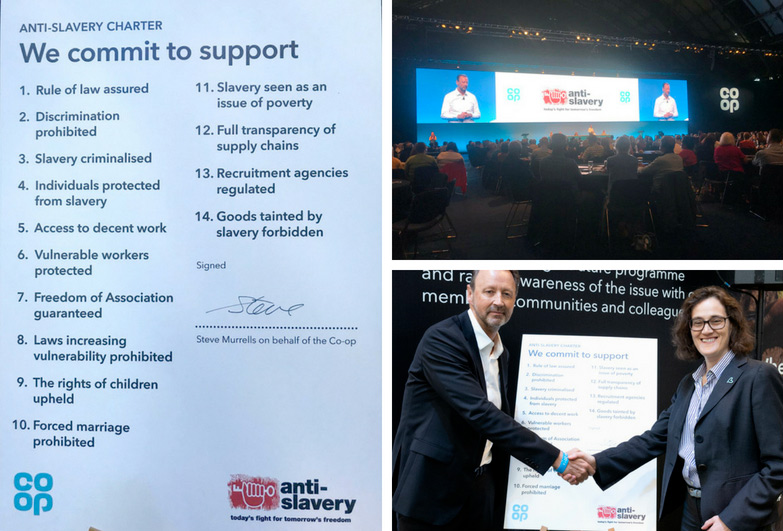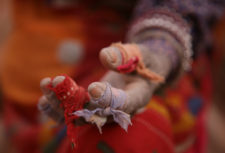Disclaimer: This article is more than 5 years old, and may not include the most up-to-date information or statistics. Please verify information with more recent sources as needed, and if you have any questions contact our Press Office.
CEO Steve Murrells explains why it’s important for the Co-op to lead business against slavery.

22 May 2018
We think of slavery as something from the history books but it is happening in the UK at this very moment.
It is a blight on our society which impacts on our fellow human beings in the most unimaginable ways as they are stripped of their freedom and their dignity. Hidden in plain sight working in nail bars, car washes and in private homes.
I believe that UK businesses have a moral responsibility to lead the global business community. By standing together and co-operating we can make it clear that we will not allow this terrible crime to continue.
That is why I was honoured on Saturday to sign the Anti-Slavery International Charter against modern slavery. Indeed, the Co-op became the first corporate organisation in the world to do so.
I have also written to my counterparts at all FTSE 100 companies asking them to commit to the actions set out in the Charter developed by Anti-Slavery International, the world’s oldest international human rights organisation.
The Charter clearly lays down the measures that States, NGOs, businesses and individuals must take if modern slavery is to be eradicated. It recognises that it is only through the co-ordinated actions of all parties that we will make progress.
Through the Charter, the Co-op has as a business has committed to ensure:
- Full transparency of its supply chains to identify where risks of slavery, forced and child labour are highest and to help identify the causes of these risks; and
- Thorough due-diligence any labour providers it uses must adhere to basic standards of human rights protections.
 The Anti-Slavery Charter
The Anti-Slavery Charter
We set out measures must be taken to end slavery across the globe
Having heard at first hand the harrowing stories of people who have been caught up in this heinous crime, I am proud that the Co-op is working to help eliminate it.
It is clear that victims need to be supported while they rebuild their lives and central to that is the dignity that paid, freely chosen employment provides. Without this, there is a real chance that they could fall back into the hands of those who have exploited them and for the terrible, unspeakable cycle of enslavement to begin again.
That is why the Co-op has pioneered a job creation programme whereby survivors of modern slavery are offered permanent employment in its food stores and distribution centres.
Under the scheme, known as the Bright Future programme, the Co-op provides survivors with a four-week paid work placement leading to a non-competitive interview. If this is successful and there is a position available, the candidate will be offered a job within the Co-op’s Food business.
Already more than 20 vulnerable survivors have secured employment and a chance to rebuild their lives and there are further candidates at various stages within the scheme.
We are now urging other companies from various sectors of the economy to sign up to provide work for people rescued from enslavement and we are confident that a number of our suppliers, other co-operative businesses and some household name companies will join the Bright Future programme in the next few weeks.
- Find out more about the Co-op’s work against modern slavery
- Take action: tweet this blog and ask one of the FTSE 100 brands asking it to commit to the Anti-Slavery Charter
 The Anti-Slavery Charter
The Anti-Slavery Charter



